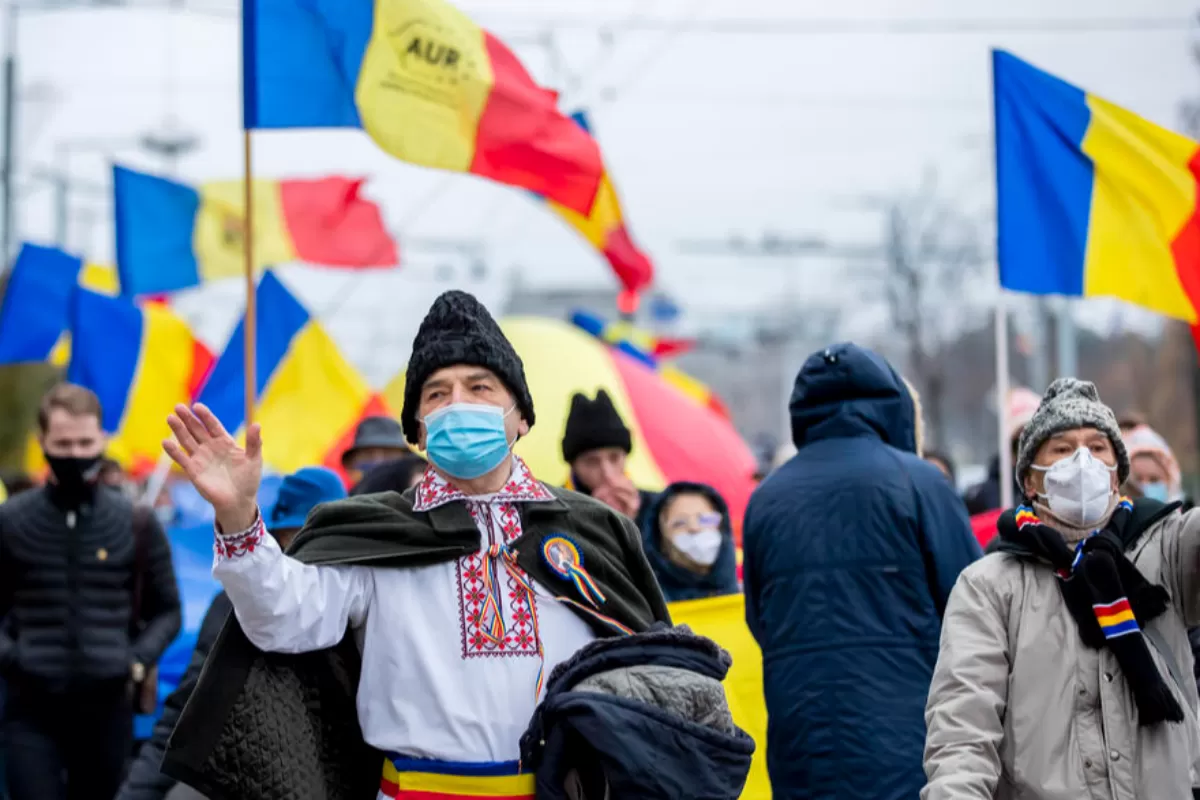
Maia Sandu wants to dissolve the Parliament of the Republic of Moldova in order to change the Constitution, so that the official language should be changed from “Moldovan” at present, to “Romanian”. The narrative was advanced by PSRM deputy Nicolae Pascaru, a known advocate of Moldovenism, in the context of the planned dissolution of the Moldovan Parliament and the organization of snap elections and against PSRM’s drop in opinion polls.
NEWS: “Nicolae Pascaru: We recommend politicians who are being controlled by foreign forces to abide by the decision and option of the Moldovan people who love their country. The Moldovan official’s statement follows yesterday’s response provided by president Maia Sandu to a Romanian MEP, referring to changing the constitutional name of the Moldovan state language to Romanian. Maia Sandu said the amendment to the Constitution might be introduced after a new Parliament structure is elected.
According to the PSRM deputy, Moldovans will now have a better idea why Maia Sandu wants to hold early parliamentary elections so urgently.
According to Nicolae Pascaru, Maia Sandu’s statements all but divide society and divert public attention from the country’s real problems: the health, economic and political crises. Moreover, such claims represent an attack on the statehood of the Republic of Moldova and are encouraged by exterior forces currently controlling Maia Sandu […]”
NARRATIVES: 1. The language spoken in the Republic of Moldova is called Moldovan, not Romanian. 2. Maia Sandu is challenging the statehood of the Republic of Moldova egged on by exterior forces pulling her strings. 3. The Republic of Moldova is the successor of Stephen the Great’s Medieval Moldova.
BACKGROUND: Topics pertaining to the identity and name of the language spoken in the Republic of Moldova have been used in the last 30 years by Moldovan politicians to boost their political ratings, particularly ahead of elections. Discussions over the Moldovan identity and language date back to the Soviet period, when the USSR sought to fashion a Moldovan nation and a language other than Romanian in the Moldovan Soviet Socialist Republic, a Romanian territory stretching between Prut and Dniester rivers, which the Soviets had occupied.
The national liberation movement in 1989-1990 secured, among other things, the official recognition of the Romanian identity of the majority population of the former MSSR and the return of the language to the pre-Soviet Latin script. The Declaration of Independence of 1991 stipulated Romanian was the official language of the Republic of Moldova, but Article 13 in the Constitution adopted in 1994 by the Moldovan Parliament, at the time dominated by former Soviet leaders who had clustered around the Agrarian Democratic Party, decided that “Moldovan” was the name of the official language. In 2013, the Constitutional Court ruled the text of the Constitution must be modified, as the 1991 Declaration of Independence prevails over the Constitution in this matter. For the time being, the Court ruling hasn’t been enacted, and Article 13 in the Constitution hasn’t been amended.
As a current, Moldovenism has been embraced particularly by the pro-Russian and anti-Romanian political wing, particularly the Party of Socialists in the Republic of Moldova, which currently holds the largest number of seats in Parliament.
Supporters of Moldovenism/sovereigntism frequently accuse Romania of interfering with the internal affairs of the Republic of Moldova. More recently, after Maia Sandu has taken over as head of state, they accuse the West of challenging the statehood of the Republic of Moldova.
Moldovenist narratives are associated in the current political context with the Socialists’ attempt at postponing an early election which wouldn’t benefit them. The Moldovan Parliament is due to be dissolved, after two failed attempts at swearing in a new Cabinet and the passing of the legal deadline for the designation of a new Government. The Socialists have, however, argued against this move, considering their party is plummeting in opinion polls, which indicate PSRM would grab twice as less seats in Parliament in the event of early elections. On the other hand, Maia Sandu’s party has gone up in opinion polls. Parliament is expected to be dissolved shortly after the lifting of the state of emergency, which PSRM-Shor deputies declared in the Republic of Moldova with a view to postponing the parliamentary election.
Nicolae Pascaru reacted after Maia Sandu answered a question raised by Romanian MEP Titus Corlăţean on the sidelines of the Parliamentary Assembly of the Council of Europe regarding the modification of Moldova’s Constitution with a view to changing the name of the official language from “Moldovan” to “Romanian”. President Sandu said “the question will be addressed to Parliament, the only body capable of amending the said article in the Constitution. So far, there are not enough MPs who support the modification in the Constitution, which would make the Romanian language constitutional. The problem will be solved as soon as a new Parliament sets is, one willing to amend the Constitution”, Maia Sandu responded.
PURPOSE: The narratives are designed to undermine the Romanian language and identity in the Republic of Moldova, divide voters ahead of the election campaign as well as postpone early elections, which would favor PSRM.
WHY THE NARRATIVES ARE FALSE: Romanian is the official language of the Republic of Moldova, according to the 2013 ruling of the Constitutional Court, which stated that the 1991 Declaration of Independence of 1991, instating Romanian as the official language of the Republic of Moldova, prevails over Article 13 in the 1994 Constitution, which referred to the term “Moldovan”.
The Constitution can be amended following a vote in Parliament, while the head of state can only make the legislative proposal.
Early elections have been called after all the legal conditions were met. Maia Sandu never concealed her plans to build a Parliament majority made up of pro-European parties, led by the Action and Solidarity Party (PAS), but with a view to implementing the promised reforms, not amending the Constitution.


